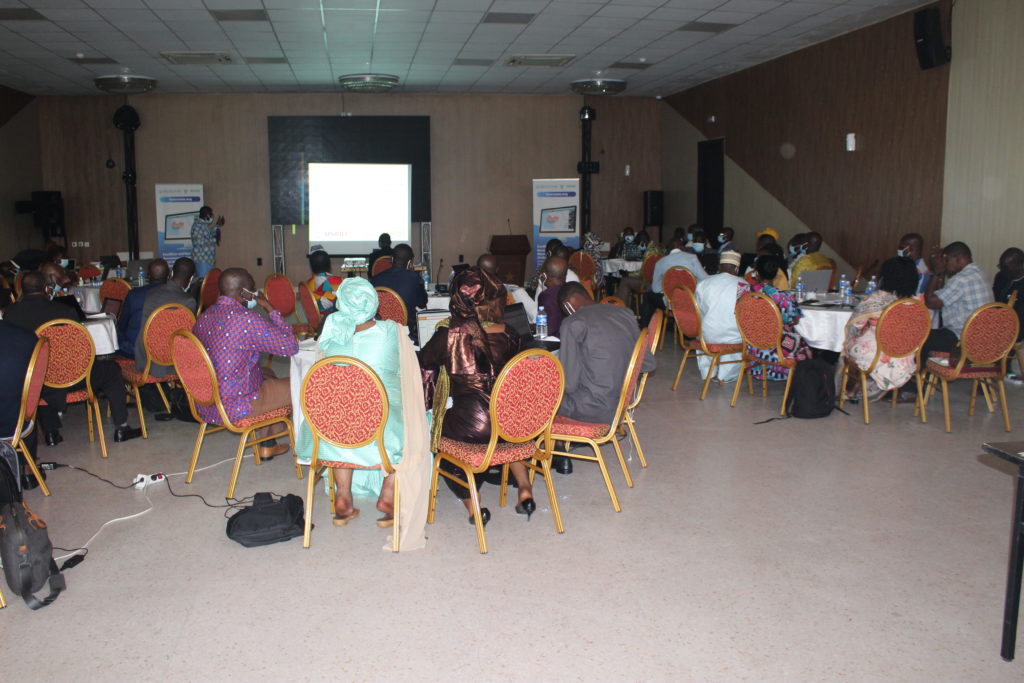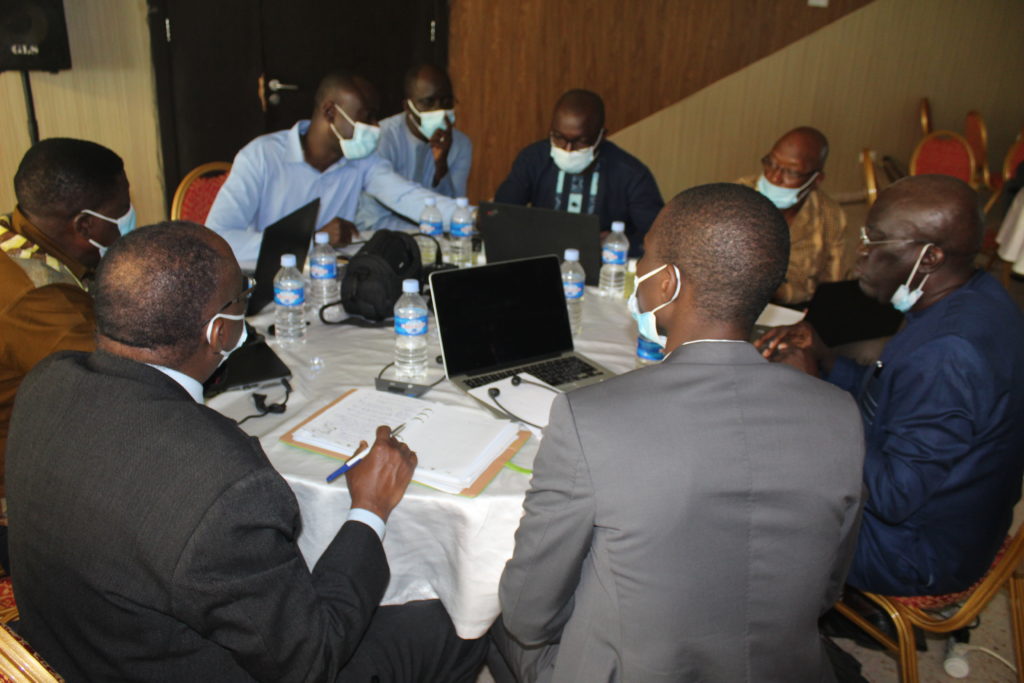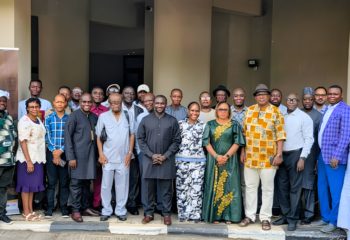
The Feed the Future Enhancing Growth through Regional Agricultural Input Systems (EnGRAIS) Project for West Africa and the Partnership for Agricultural Research, Education and Development (PAIRED) project have trained 50 new regional trainers to support national and local cascade training activities on the use of the Fertilizer and Seed Recommendations for West Africa Map (FeSeRWAM) platform and agricultural input packages (AIPs).
During a regional training workshop held in Abidjan, Côte d’Ivoire, July 6-8, 2021, 50 regional trainers, including eight women and 42 men, from Benin, Burkina Faso, Côte d’Ivoire, Ghana, Mali, Niger, Nigeria, Senegal, and Togo learned relevant skills on how to impart knowledge and information on the use of the FeSeRWAM and AIP tools to stakeholders along the agriculture value chain, focusing on farmers.
This was the first in a series of trainings planned at the national and local levels across the region in the coming months to promote agriculture productivity in West Africa.
FeSeRWAM (www.feserwam.org) is a geographical information system and web-based platform that captures, stores, and provides information on recommendations for seeds and fertilizers for the West Africa region and Chad. It is the vehicle through which AIPs are delivered.
Successful dissemination and adoption of these tools will benefit over 600,000 farmers across the West Africa region and Chad, helping them increase their yields and agricultural productivity to reduce food insecurity across the region and boost their incomes.

A team of four facilitators, including experts in soil science, breeding, extension and adult education, and strategy, conducted the training. Participants came from varied professional backgrounds and experience: 10 from the public sector (research, extension, agricultural policy), 17 from the private sector (fertilizer and seed), and 23 from civil society (regional and national umbrella organizations, farmer-based organizations, and non-governmental organizations). The diversity of their countries, expertise, and professionalism enriched the training process.
Through a participatory, inclusive, and co-development approach, participants developed and validated two innovative training modules – one for national trainers and one for end-users – to guide national- and local-level cascade trainings in various countries to ensure large-scale dissemination of FeSeRWAM and the AIPs across West Africa and Chad. The target is to reach over 600,000 farmers across the West Africa region.
In addition to developing the training modules, participants developed and validated various tools and country-level work plans for the cascade trainings to disseminate the AIPs.
FeSeRWAM and the AIPs are flagship products of the collaboration between the International Fertilizer Development Center and the West and Central African Council for Agricultural Research and Development through their respective EnGRAIS and PAIRED projects, funded by the United States Agency for International Development/WA Mission.




